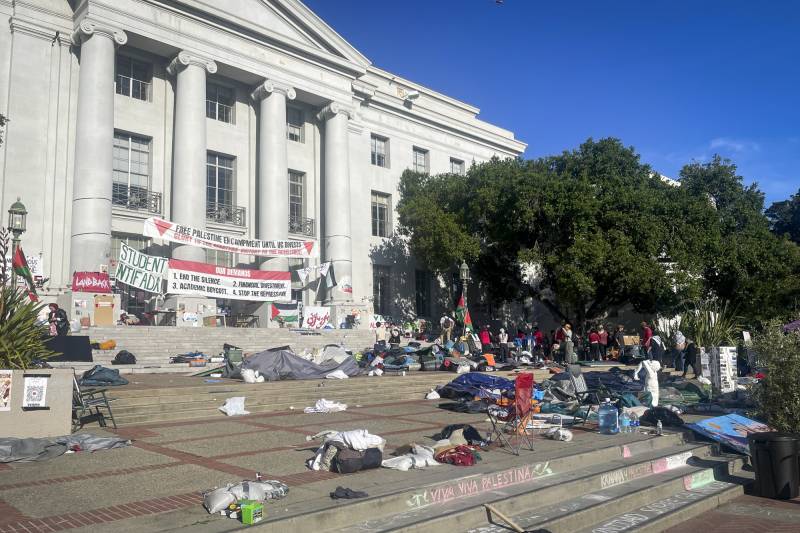Pro-Palestinian activists at UC Berkeley ended their weekslong encampment on the campus’ central plaza following last week’s commencement ceremonies and a letter from the university detailing steps it had agreed to take based on protesters’ demands.
Ria Raniwala, the executive news editor of the Daily Californian, told KQED that as of Wednesday morning, all that remains on Berkeley’s Sproul Plaza is a large sign reading “Off to Merced,” where Berkeley activists are gathering with other UC campus coalitions to protest as the Board of Regents meets there this week.
University Chancellor Carol T. Christ said she was greatly relieved to “bring this protest to a peaceful end.” The camp was set up on April 22 to put pressure on the university to divest from companies with ties to Israel.
Christ agreed to take steps to review the campus’ investments and develop a transparent process for assessing whether any of its global exchange and internship programs are out of step with the UC’s Anti-Discrimination Policy, according to a letter Christ sent Tuesday to the Free Palestine Encampment detailing the agreement between the university and encampment representatives.

